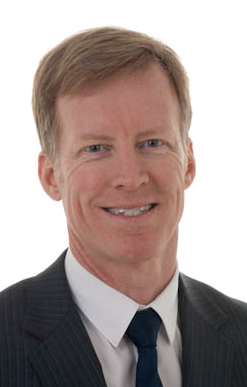"The glass ceiling is real"
“I’ve never met a female associate professor who says that she doesn’t want to be a full professor,” says Curt Rice, the new chair of the Committee for Gender Balance in Research.
The former director of a Centre of Excellence and Vice Rector of UiT The Arctic University of Norway has been involved in gender equality work at the local, national and international levels for many years. He has won UiT’s gender equality award, and is currently writing a book on how biases affect gender balance. Now Professor Curt Rice has been named the new chair of the Committee for Gender Balance in Research (the KIF Committee) for four years.

Rice disagrees with Skogen Lund
After Kristin Skogen Lund, head of the Confederation of Norwegian Enterprise (NHO), called the glass ceiling a myth, there has been a debate about the factors that prevent women from advancing to the highest levels of working life. Rice completely disagrees with Skogen Lund.
“I take it as fact, not opinion, that there is a glass ceiling in academia.”
With 40 percent female associate professors and 20 percent female professors, Rice thinks this numerical deviation needs an explanation. Those who say there is no glass ceiling must present sound research that supports their claim, but it does not exist, he says.
“Either women don’t want to become professors or something is holding them back. I see only two possible explanations,” he continues.
“But I’ve never met a female associate professor say that she didn’t want to become a full professor. If women have the desire, but aren’t able to achieve this, what mechanisms are we then seeing?” asks Rice.
“There are underlying biases that affect very many areas. It’s incorrect to claim that there are no structural factors that impact men and women differently.”
Biases lead to gender imbalance
Biased attitudes are the key to understanding that men and women have different experiences along the career path and career ladder – what Rice calls implicit bias. He refers to a study from 2012 in which both male and female professors assessed job seekers based on their CVs. The CVs were identical, except that some were named “John” and some were named “Jennifer”.
“They were less likely to hire Jennifer than John, and Jennifer got a lower salary as well,” he explains.
“Jennifer is actually not unwelcome there, but those who do the hiring have been shaped over time by society and culture. There is a great deal of evidence that biased attitudes and unconscious prejudices have caused women to be excluded,” says Rice.
Currently on sabbatical, Rice is writing a book and blogs about gender balance. In his current work he scrutinizes prejudices and biases and shows how these explain many of the differences we observe in men’s and women’s career paths in research organisations.
“In my book I describe in detail what these biases are, why we should be concerned, and how we can improve the situation. Prejudice and a lack of gender balance is a complex problem, but we can do something about it, and I will incorporate this into my work with the KIF Committee.”
The KIF Committee has an important role
According to Rice, it is crucial that gender equality activities are integrated into the overall strategic goals of the various institutions, and in this regard the KIF Committee is an important resource and partner in these efforts.
“I view gender equality efforts as an essential tool for improving research institutions. Not just for women, but for everyone. Knowledge production is a vital key to improving society as a whole, and those of us on the KIF Committee can help to achieve this,” he says.
“Improving the gender balance is both wise and appropriate, and there is a lot we can do with the imbalance we see.”
Some of the KIF Committee’s most important functions in the future will be to generate more knowledge and awareness about gender equality. The new chair believes that the KIF Committee will continue to participate in the debate through consultancy, various events and cooperation. In this way the committee can draw attention to gender balance and give its input on specific measures, which will help the various institutions to promote gender balance.
Support of the leadership at many levels
Rice talks about the experience he has gained, and which he wants to draw on in his work with the KIF Committee.
“Gender equality efforts are an example of a type of work in which a top-down initiative is essential. The institutional leadership must believe that gender balance is important in order to get measures launched and make things happen. I’ve seen this at the local level, and now I’m looking forward to working further with this at the national level. The KIF Committee plays a crucial role in this regard,” says Rice.
“To achieve this, it’s important to base gender equality activities in the line of leadership, such as with department heads and deans. I believe this increases the chance of projects succeeding,” he continues.
Good working environment
The KIF chair believes that greater awareness of gender perspectives in the workplace and in research is important as well. He points out that a good workplace is a gender equal workplace, which he believes is a key element in successful gender equality efforts.
“Having a good workplace that is equally good for men and women is an important topic that affects everyone from senior-level positions to recruitment and temporary positions. People perform better when they have good working conditions. This helps to produce better research and makes us more competitive internationally.”
“I also think it’s important to incorporate gender perspectives into the research itself, both to raise the level of expertise among Norwegian researchers and the competitiveness of gender knowledge, and because it’s more interesting for women to participate when they feel that the research concerns them,” concludes Rice.
Translated by Connie Stultz.
The Ministry of Education and Research has appointed a new Committee for Gender Balance in Research for the period from 1 January 2014 to 31 December 2017.
Curt Rice, a professor at UiT The Arctic University of Norway, is the new chair of the committee.
Read more about the new chair and the other members of the KIF Committee at the links below.

